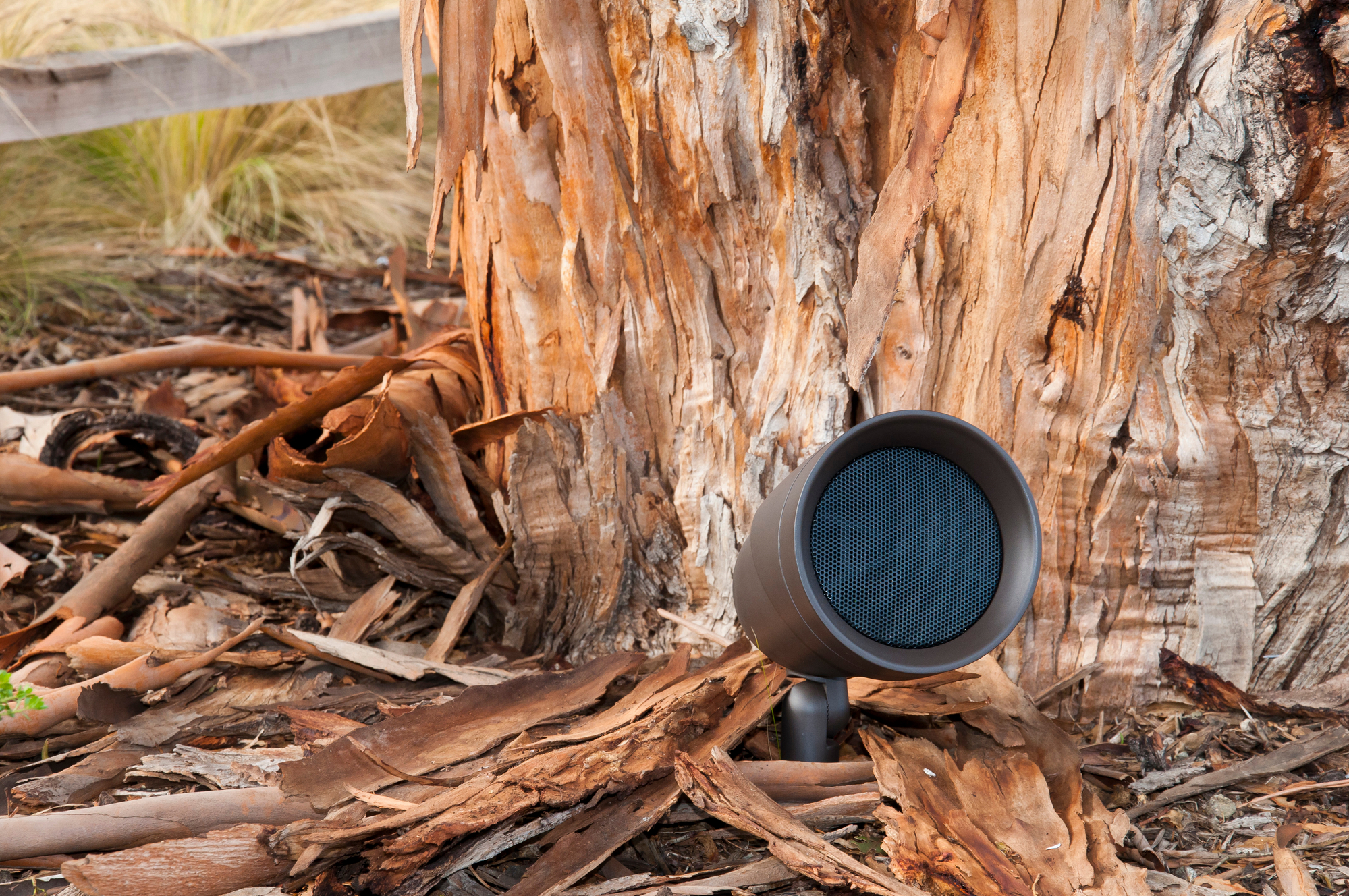How to Find the Perfect Sound System for Your Space
What is Your Ideal Speaker Placement?
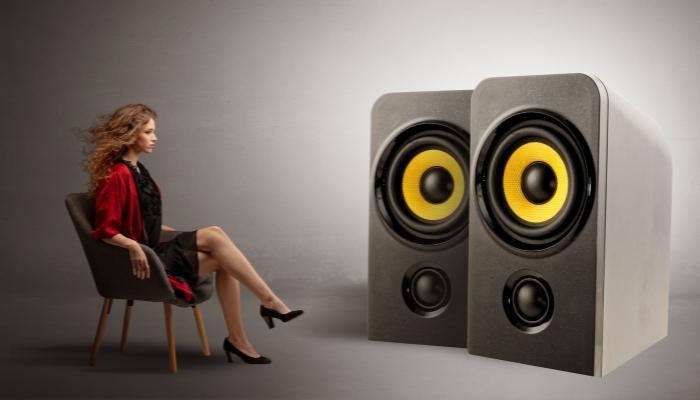
So, what is the ideal placement for your sound system? In a perfect world, you'd have a square room with minimal obstructions between you and the speaker. But that's not always possible, and so you'll have to accommodate for what is in each room. Remember that you want enough space for each speaker to have individual audio fields without getting echo-y or otherwise distorted.
What Does That Actually Look Like?
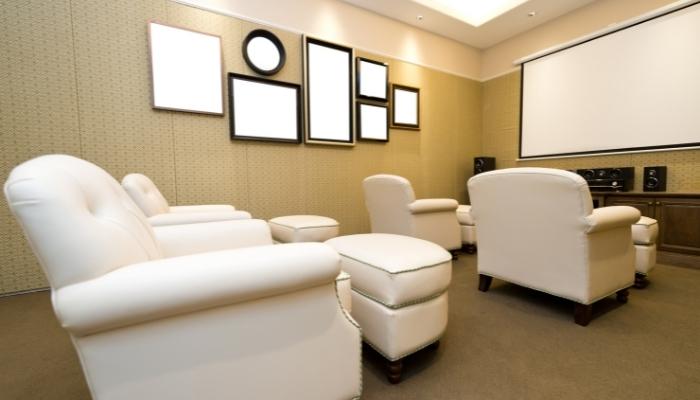
To find the correct placement for your space, you need to do some trial and error to place each type of speaker.
- Front Left & Right Speakers: Place these far enough apart to distinguish sounds coming from either direction. If your room is asymmetrical, you may need to tinker with the channel's panning and volume levels.
- Center Channel: Equalize with your front speakers in mind to get a smooth range of sound, especially with dialogue. Most setups have this speaker above or below the screen.
- Surround Speakers: Space them apart from the same distance as your front speakers or a little wider and face them towards you. Or place them behind your seating position and angle them toward you.
- Subwoofer: Work in any spot, ideally in a corner with no X-factors like furniture, carpeting, or thick wall construction to interfere. Clean, punchy bass is the goal with no rattling of windows or dishes, so try placing them near your seating locations for the best impression.
What About the Room Size?

Of course, the size of your room is another crucial factor in finding the perfect sound system. You might think that the larger the speaker, the better, but if you don't have enough space for the sound to move, even the best quality speakers will leave you disappointed with your sound system. Instead, you'll need to choose the sound system that fits your space.
Small Rooms
A small room is typically a bedroom-sized room with an 8-ft. ceiling. You'll need to place your speakers about 6 to 8 feet away from the listener. But which speakers should you get? Giant floor speakers will be too much power for this setup, so you're better off with a two- or three-channel system instead. Don't forget to consider on-wall speakers to free up floor space and tweak your sound with acoustic panels.
Pro Tip: Remember that desktop speakers are designed to provide sound at close distances and aren't ideal for a full-room setup.
Medium Room
A medium room is usually considered a larger living space with speakers sitting 10 to 12 feet away from the listener. While you can opt for that tower speaker here, you might miss out on crucial midrange frequencies., Sso you'll be better off choosing a system with bookshelf speakers, a soundbar, and surround speakers. You don't want anything that takes too much space. However, mounted bookshelf speakers can be dangerous if you have small children.
Large Room
A large room is considered a banquet hall-type space with tall ceilings. Typically, the space should be large enough to place the speakers 12 feet away from the listener. Here's where you can go all out with a super large sound system with floor speakers with built-in subwoofers or standalone subs. You can splurge on super-high-quality speakers and place them in key spots around the room.
What Can Affect My Sound Quality?
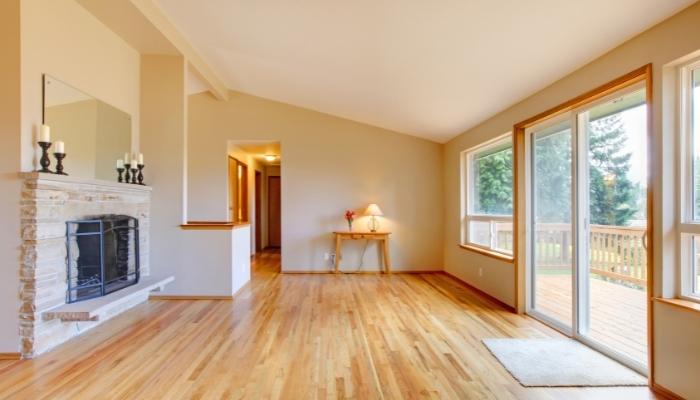
Aside from the size of the room, other aspects can muddy your sound. So even if you have the correct setup for the right space, you might need to tweak things even further. For instance, if you notice you're having trouble hearing the dialogue as you watch TV, your room may have too many reflections like wood floors, tiling, terrazzo floors, or several windows. Even a coffee table in front of your TV can negatively affect your sound.
How do you fix it? While you can remove the reflections, that's not always possible in every room, so you'll need to control the reflectivity for a more authentic sound.
If you have big sliding glass doors, try using fabric drapes to minimize the reflections. And if you have reflective flooring, try adding a throw rug in front of the TV. You can also move your speaker placement or go full DIY with sound absorbers.
Are You Ready to Upgrade?
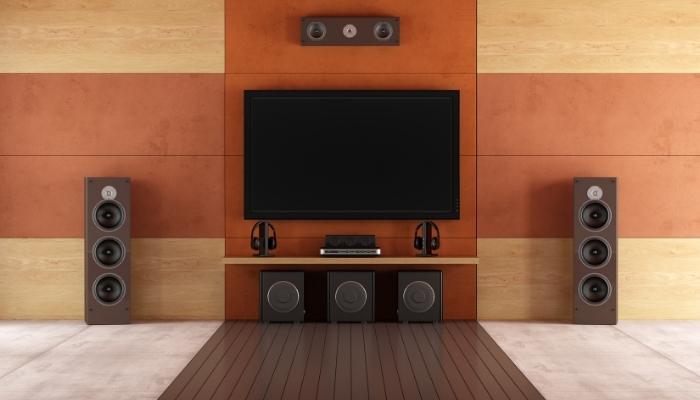
A perfect sound system will leave you feeling like you're a part of the action, with shivers down your spine, bass in your chest, and the thrill of every changing scene. Watching TV or listening to music isn't nearly as fun without one. So, if you're ready to upgrade your lackluster system, you're in the right place!
At AV Design Consultants, we have the speakers and soundbars that make up the best sound system for your space. Have any questions about your upgrade? Give our team a call! We'll be happy to help you dive into the immersive world of sound!
When you subscribe to the blog, we will send you an e-mail when there are new updates on the site so you wouldn't miss them.




